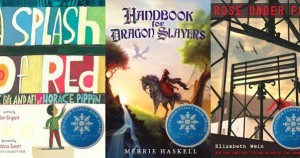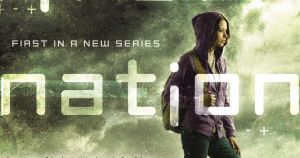
Discussion: Fictional Disabilities
In science-fiction and fantasy, you invariably run into fictional disabilities and allegories. Do these “count” as disability? What makes them work successfully in a book?

In science-fiction and fantasy, you invariably run into fictional disabilities and allegories. Do these “count” as disability? What makes them work successfully in a book?

We recap the highlights of our #diklSFF Twitter chat, including a link to the full Storify.

We’ve been wanting to shake hands with the good folks of the Schneider Family Book Award–an ALA award which highlights depictions of disability in children’s literature–for a while, and July 2014 marked the perfect time: while we celebrated our first anniversary, the Schneider celebrated its tenth!

The description for this book uses the phrase “brilliant but autistic” to describe its main character, and that’s where our conflicted feelings about Viral Nation start.

A one-armed astronaut superhero is the lead in Dangerous, the unusual new novel by NYT bestselling and Newbery Honor-winning author Shannon Hale, who sat down with us for a great interview.
If our contributors could tell an author writing a character with their disability one thing–besides “do your research”–what would it be?

Many characters who may be mentally ill reject treatment out of hand, considering therapy a waste of time and suspecting medication will turn them into a zombie. Why are these narratives so popular? What are the alternatives?

Skim does a good job of showing misguided attempts to help those with depression, and lets the reader see the absurdity for themselves.

Everything, Everything starts out as a respectful, sensitive narrative with incredibly likable characters, but ends on a shockingly disappointing note in terms of disability representation.

This book portrays its autistic protagonist in ways that will give readers negative, incorrect, and in some cases abusive ideas about autistic people.